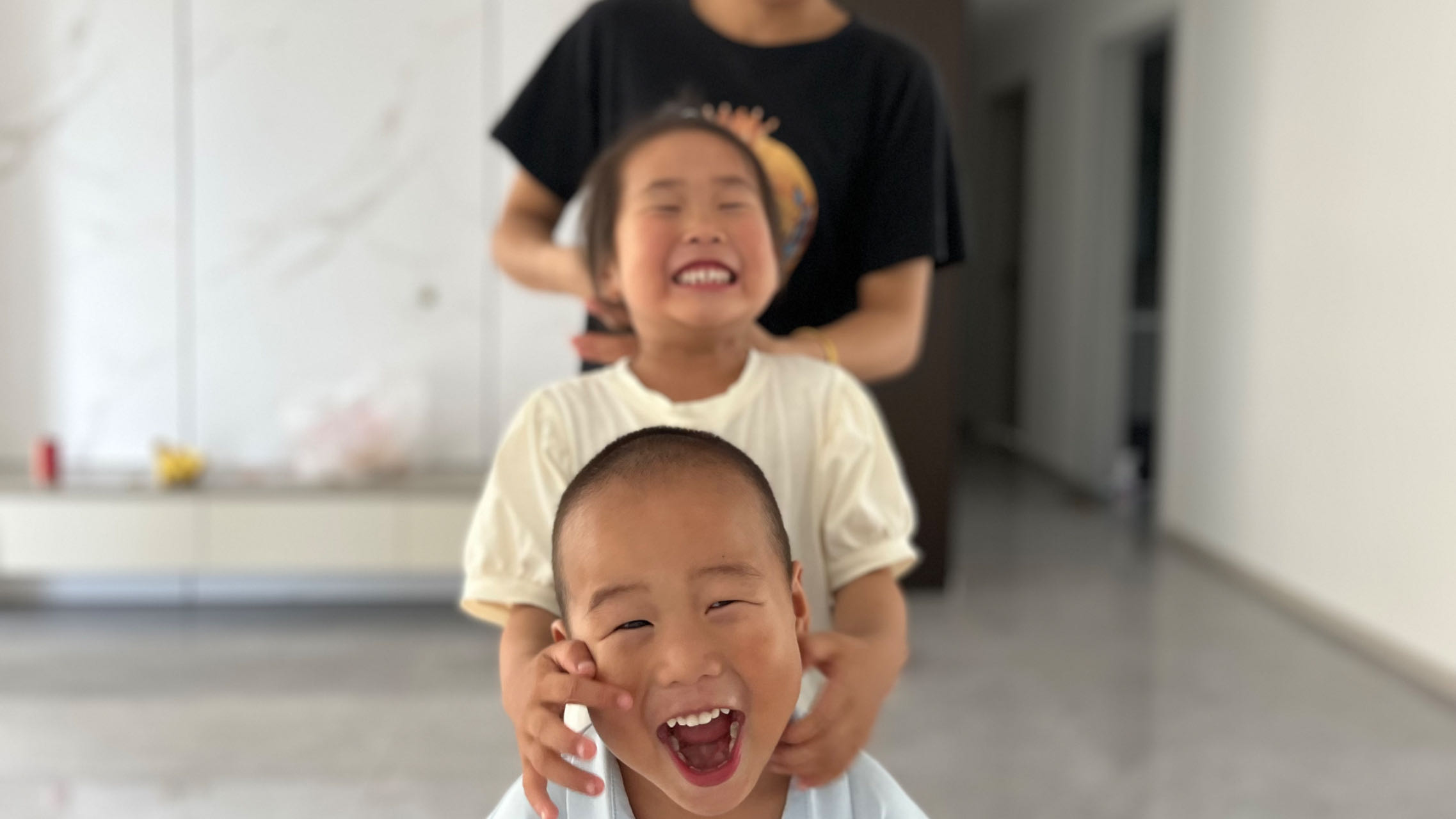Young urban mothers with new children in China have traditionally relied on their parents and in-laws to help with the burden of childcare, but this is changing. How hard is life for young parents who no longer get the help they expect?
All Ting Huang had to do was manage her new life as a full-time mother. She had been a saleswoman for three years, the only professional role she had really mastered. Now, in a small apartment in Hunan, her days are filled not with client meetings and sales targets, but with the endless demands of her two young children: five-year-old Xinyao and three-year-old Yufan.
Ting’s transition from the business world to family life was not a choice driven by preference, but rather a necessary response to the complete lack of support from her parents and in-laws. Her parents expect her to juggle her career and children, but for Ting it’s a struggle just to get through each day.
“Sometimes it feels like the world expects me to do everything perfectly on my own. Since the birth of her children, I lose my personal life. I used to spend my weekends shopping and drinking coffee with my sisters, but now it feels like a distant dream, I don’t even put on make-up every day.” she says.
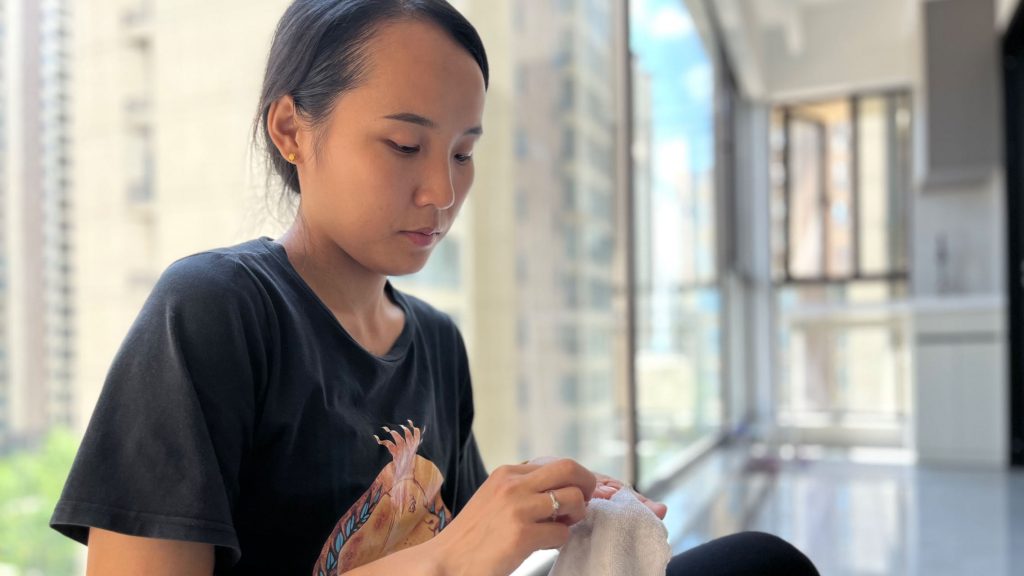
Ting, 26, got married six years ago and dreamed of a life balanced between work and family, supported by the same multi-generational household she grew up in. She was so happy back then that she thinks her life is just beginning, but she does not know that everything is as different as she thinks.
Since the birth of her first child, Ting’s life has changed dramatically. Social outings with her friends and personal time have taken a back seat to her children’s relentless demands.
Ting is not alone. Her situation reflects a broader trend where many young Chinese parents are navigating parenthood without what was once considered a norm of deep family support.
Recent research by Dr. Shuai Zhou and his colleagues at The Hong Kong Polytechnic University shows that family support in China is changing. Their study reveals that fewer grandparents are now playing traditional roles in childcare due to changes in lifestyle and social expectations.
“Our findings indicate a substantial move towards more independent living among older generations, who increasingly prioritize personal time and hobbies over traditional roles like babysitting,” Dr. Zhou stated.
“Before marriage, I was all about meeting clients and meeting sales targets,” Ting says. “Now I can’t even think about work. I miss the excitement of my sales days.”
But she does not blame her children or regret getting married. She blames her parents for not helping her. “Sometimes I do not understand my parents, they always have plans and excuses not to take the children with them,” she says.
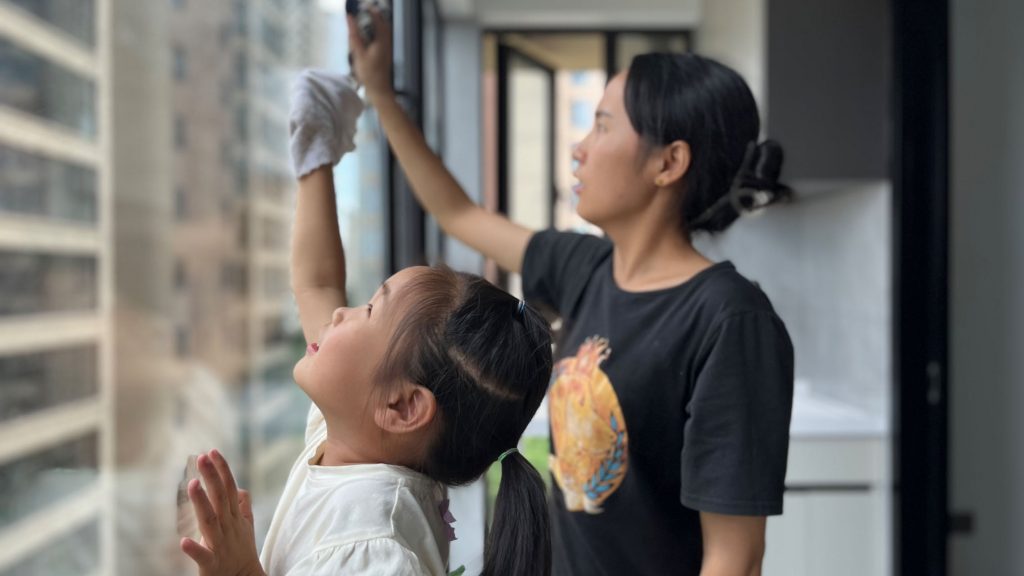
Like many of her generation, Ting had expected to manage her career and motherhood with the help of her extended family. But the traditional support system is changing.
In the past, this family-based support was crucial for working parents. It helped maintain strong family ties while allowing parents to pursue their careers. Today, many grandparents prefer to focus on their own lives after retirement, leaving young parents like Ting without the expected family support.
This is a trend that Ting’s family is a good example of. “It’s really because of the better economic conditions,” Ting says. “My parents now have the money to enjoy their retirement on their own terms, they love to travel and hang out with friends instead of babysitting for my children.”
“I’m really happy that my parents are enjoying their freedom, but sometimes I wish they could spare a couple of years to help with the kids. It might sound selfish, but it’s how families used to support each other in the past, right?” Ting says.
This shift is common to many Chinese families, according to a study by Juhua Yang of Minzu University in China and Shenghong Du of China Women’s University. They found that as economic conditions improve, many older people are moving away from their traditional roles as primary caregivers to pursue personal interests and leisure activities.
Ting’s mother Lizhen Huang said to her: “After more than 20 years of working and dedicating ourselves to our children, all I want is to develop new interests and hung out with her (Ting) father. He and I haven’t travelled much in recent years, and now we both want to have a good time together.”
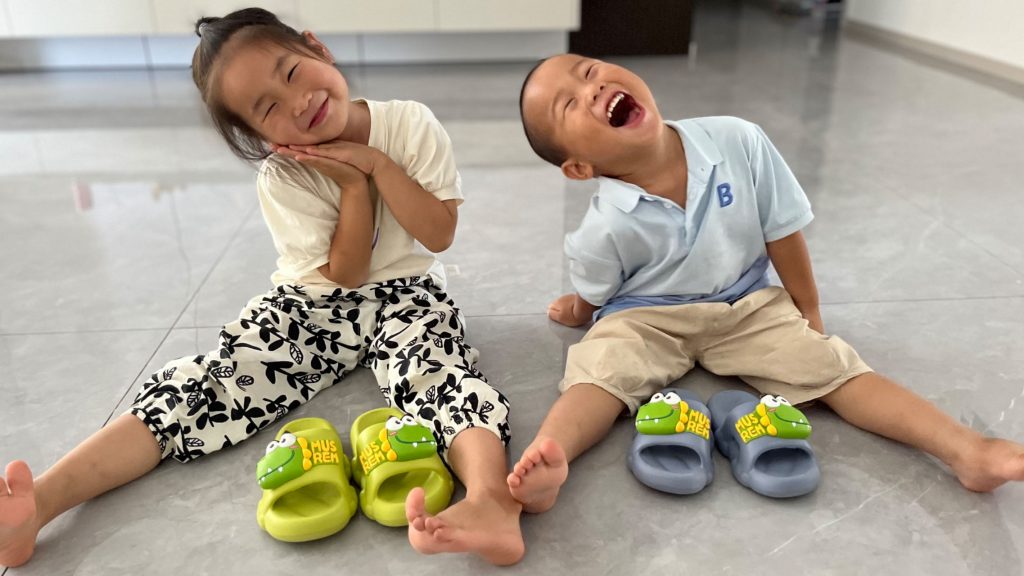
While these changes are liberating for some, they pose challenges for young parents like Ting. She must navigate childcare without the expected family support. For Ting Huang, the days start early and stretch long into the night. “It is just us, every day, from morning to night,” says Ting.
Ting’s mornings are a routine of getting ready and being patient. Xinyao, their five-year-old, is full of questions and curiosity and needs guidance and constant engagement with her schoolwork. “We work on her studies together after breakfast. It’s our special time,” says Ting.
Meanwhile, her younger son Yufan, who isn’t at school yet, is glued to her side, demanding attention with the boundless energy of a three-year-old.
The siblings’ different needs pull Ting in different directions. She talks about how Yufan’s irregular sleep patterns disrupt the household. She says that some nights she only sleeps in short bursts, often punctuated by her son’ cries.
“There’s no set pattern, just a constant need,” she says. She talks about how some nights go on into the early hours of the morning with her youngest child wide awake and playful.
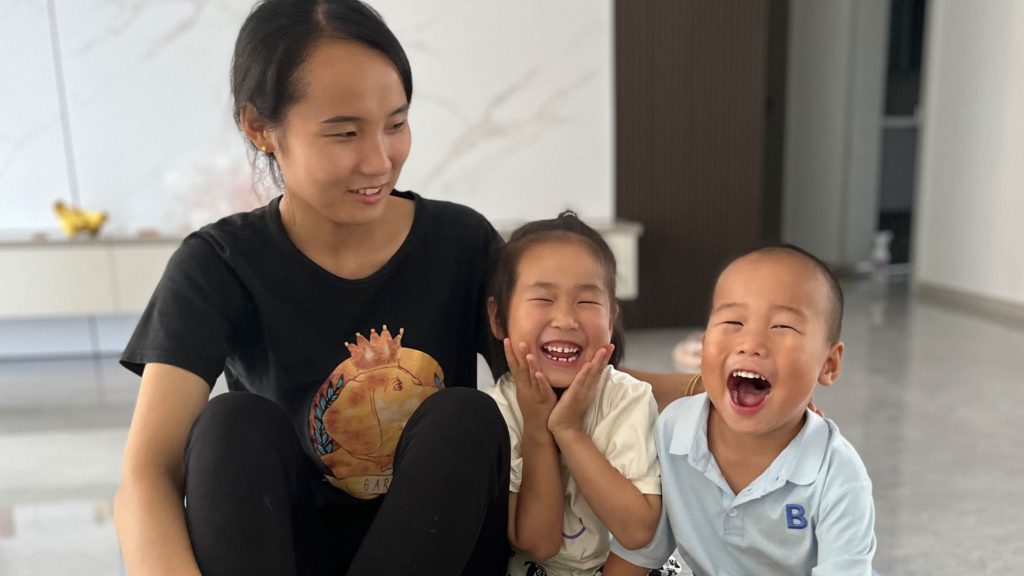
Typically, it’s when her husband leaves for work that she has to face the challenge. “He takes Xinyao to school, and then it’s just me and Yufan to get through the day,” says Ting. Their tasks range from household chores to preparing meals, all while keeping Yufan safe and engaged.
The hot season means they are often be confined to the house, which Ting likens to a kind of soft imprisonment, safe and necessary, but wearing on her.
Relief comes in the evenings when Xinyao returns from school. Ting’s husband takes over Yufan’s care, giving Ting precious moments to focus on her daughter, such as helping with homework, reading stories, and discussing her day.
“It’s a balance, always a balance,” says Ting. She exchanges roles with her husband every day to make sure each child gets the attention they deserve.
Ting has not thought about hiring help. It is not just the cost, although it is not easy to stretch pennies for two children. She is also holding out hope that her parents will come and live with her to help a bit.
However, Xiyan Zhang has a very different experience of family support compared to Ting Huang in Hunan. She’s 28 and a doctor at the Affiliated Hospital of Sun Yat-sen University in Shenzhen.
After giving birth earlier this year, Xiyan’s mother-in-law, who recently retired, stepped in to take on the role of full-time caregiver. This meant that Xiyan was able to get back to her demanding career without the usual worries that new mums face.
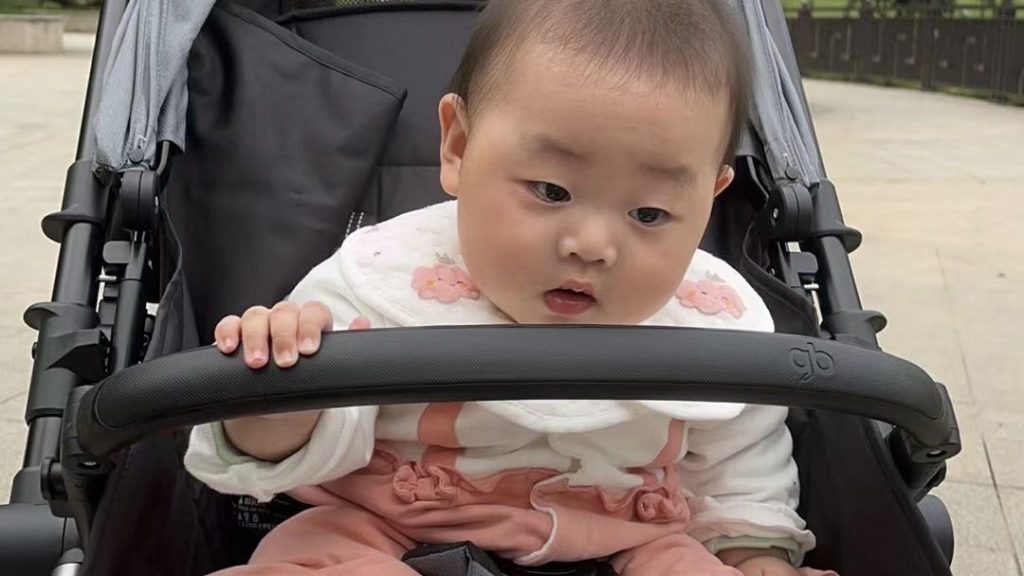
Xiyan is deeply grateful for her mother-in-law’s dedication. “I’m really grateful to my husband’s mother. She retired and then devoted herself entirely to our daughter. “She even uses her savings for our baby’s needs,” Xiyan says.
With the help of her mother-in-law, Xiyan’s return to work shortly after her maternity leave was extremely smooth. Her colleagues often say that she resumed her duties with the same energy as before.
“She is unusually still like a young girl, unaffected by the usual post-maternity exhaustion. It’s as if she hasn’t had to deal with a crying baby at all,” says Xiyan, repeating what her colleagues have told her.
By contrast, Xiyan’s own mother has chosen a different path in her retirement. She enjoys activities like yoga and square dancing with friends. “My mother is into a more laid-back lifestyle and her hobbies, she told me that she wants to live the rest of her life for herself, happy and free.” says Xiyan.
“She particularly enjoys watching short videos on Douyin (China’s version of TikTok). Sometimes she drops by to see the kid and help me to take videos of the kid. She always tells me the new techniques she’s learned from her idols on Douyin.”
The difference in grandparental support has got Xiyan’s friends and colleagues talking. They often say she’s in a better position than parents who have to juggle childcare and work without any extra help from their families.
However, Ting’s situation in Hunan is quite different. Without the support she was expecting from her parents, she has to spend a lot of time juggling childcare and household responsibilities. This is pretty common for young mums when traditional family structures change. That’s why Xiyan’s colleagues say she’s lucky.
Xiyan’s experience gives a good insight into how modern families are dealing with these changes. It shows how some families can afford to be more flexible, which helps them to achieve a better work-life balance. But not all grandparents have the same choices when it comes to being involved with their grandchildren. Mothers like Ting don’t have that option.
Xiyan is really happy with the way her family has found a solution that works for them. “It’s a tricky balance but having my mother-in-law’s support means I can keep working without missing out on my child’s early years,” she says.
As the number of grandparents is set to reach 2.1 billion by 2050 (that’s 22% of the total population), the way we care for the elderly is changing. These changes, along with ageing societies and the increasing value placed on children, are prompting a look at how families and support systems can be improved.
Some countries have proposed new ways to support families. China could well learn from these models to adapt to its own changing dynamics. In Brazil a new concept has been introduced called “paid grandparents”. It shows how traditional roles can be combined with modern economic realities. This means that older people can contribute to their families without giving up their independence.
Another good example of using the experience and skills of older people to provide childcare is the “One Hour Headscarf” program in Russia. The program connects retirees looking for part-time work with families in need of temporary childcare. The elderly could get some extra money, and young families struggling to care for their children could get some much-needed help.
Dr. Elena Petrova, who researches social policy at Moscow State University, said: “This is a real breakthrough because it recognises the untapped potential of older people. This gives them the chance to stay active in society, earn money, and use their experience in a meaningful way.”
China could look to these models for inspiration and introduce policies to provide financial incentives to grandparents who are willing to take on a parenting role. This will help to relieve the pressure caused by population migration to cities and the high demand for childcare in cities.
However, China could face challenges if it were to introduce a similar policy. For China, urban-rural disparities, regional economic disparities, and existing cultural expectations of family roles may make it difficult to standardise any form of paid grandparenthood.
To make this happen, China needs to have the right support systems and regulations in place to make sure the elderly are treated fairly and that childcare quality is kept high. This could include training programmes, regular assessments, ways of dealing with complaints and maintaining transparency.
Ting Huang is optimistic about the future. “Every day is a challenge, but I have to believe that things will get better. I’m happy to see my children grow up, that’s what being a parent is all about. I hope for more family support, but I also hope we all recognise how hard it can be and find ways to support each other,” says Ting.
